The “World’s Cutest Sheep” in Colorado
On a dusty road, halfway between Denver and Fort Collins, sits the thirty-five acre farm of Davis Family Livestock, with stunning views of Long’s Peak to the west and the piercing blue sky overhead. My focus, however, is much closer to the ground: on the new lambs chewing on my shoelaces. Affectionately called “the world’s cutest sheep,” the Valais Blacknose are the showstoppers of the Davis farm. The breed originated in the Valais region of Switzerland, and though endangered, it has grown in popularity though Europe, Australia, and the United States in recent years. While many breeds of sheep tend to be wary of people other than their shepherds, the Valais eagerly demand attention from everyone.
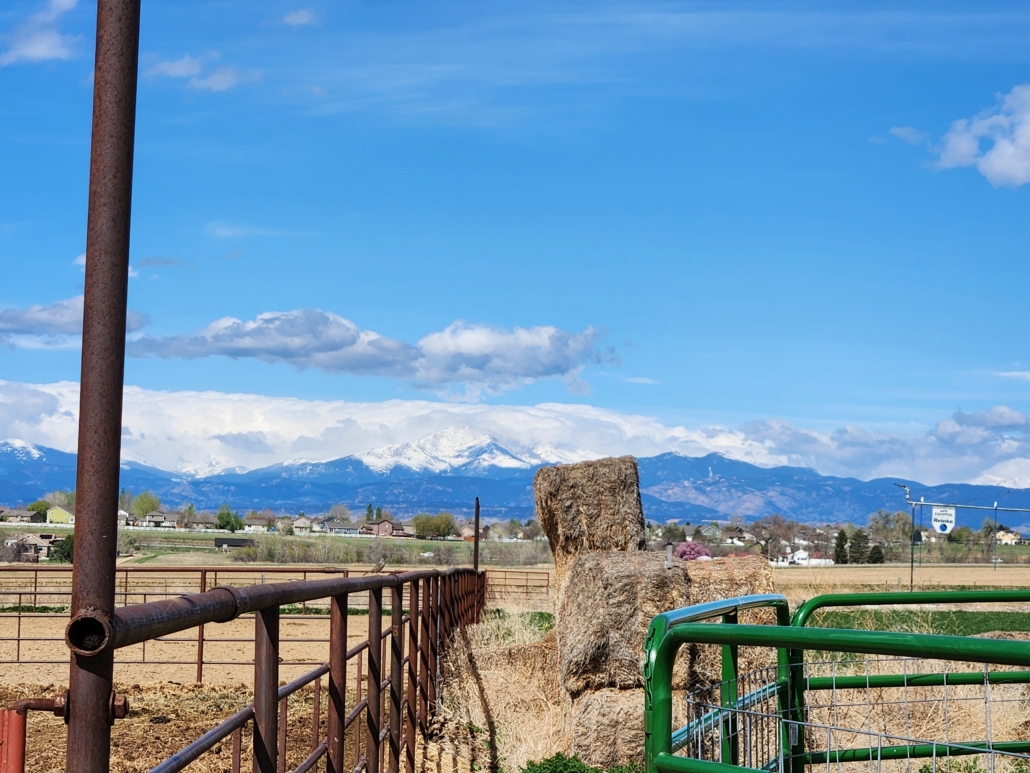
The Davis family began breeding Valais Blacknose sheep in a roundabout way. A friend of Anne’s had told her about a British show with the cutest sheep, and it piqued Anne’s interest. After much research and discussion, Rob and Anne decided that the Valais Blacknose sheep would be the perfect animal to start their farm because the Valais have to be marketed differently than other breeds. Due to their rarity, newness, and novelty, one doesn’t need to run thousands of heads on massive acreage to make money. Plus, at the time, no one else in Colorado was raising the breed.
“There’s no mystery on how to raise sheep,” Anne told me. “We’ve been doing it for thousands of years.” But breeding Valais Blacknose does come with some unique challenges. The USDA does not allow the live import of sheep or goats. The only way to introduce new breeds of sheep to the U.S. is through imported semen and embryos, which go through rigorous genetic testing. Additionally, breeders want semen from rams that meet the Swiss standards for size, quality of fiber, and coloring. It takes a long time to meet all these requirements. In 2016, New Zealand was the first country to export Valais Blacknose semen to the U.S., with embryos following later. A couple years ago, the UK began exporting semen, and in 2024 began exporting embryos as well.
Then it’s a matter of time and careful breeding. By the fifth generation of lambs, both ewes and rams are U.S. purebred Valais Blacknose sheep. The Davis family began their breed-up program with several Scottish Blackface sheep, and some first- and second-generation Valais sheep. They were purchased from a woman in Idaho who had started the program on her farm but had to stop due to some personal health challenges. The Davis family bought her sheep and continued the work she started. Anne told me that the two of them are friends to this day.
Rob and Anne Davis purchased their 35-acre farm in 2020, the same year they began breeding Valais Blacknose sheep. Both come from agriculture backgrounds, Rob from a ranch in Colorado, and Anne from a fruit and vegetable farm in Oregon, and when Rob retired in 2017, the family began considering their next steps. Rob has a PhD in Agriculture Economics and Anne holds a master’s degree in Plant Pathology, but both wanted something more tangible to leave as a legacy for their two children. Their daughter Maddie has a passion for livestock and plans to take over the farm in the future.
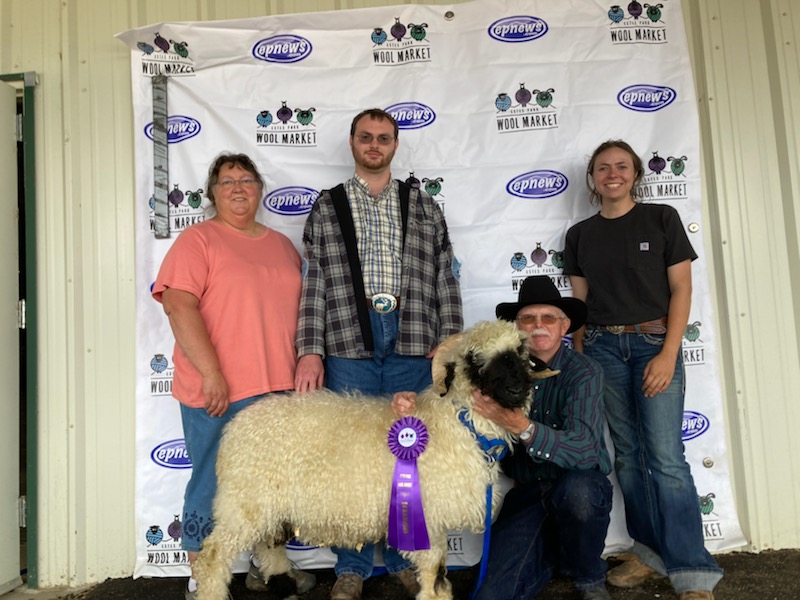
Higher education has been a significant part of the life of the Davis family, and they highly value the role that education plays in communities and relationships. Tours of the Davis farm are always free because Rob and Anne want their farm to be as accessible as possible. During the 2024 lambing season, they gave several tours a week, with lambs being delivered during a couple of the tours! Their tours typically begin with a walk around the farm to meet all the animals. In addition to the Valais Blacknose sheep, the Davis farm currently has Scottish Blackface sheep, Rambouillet sheep, a guard llama and alpaca, and several horses. The tour wraps up in the barn where Anne has put together an in-depth display of the fleece-to-product process. The display includes raw fleeces, a skirting table, handspinning tools, a dye pot, looms, and felting tools. I’ve led several handspinning demonstrations for tours, which allows visitors to watch and learn to spin yarn from Valais wool. In 2024, the Davises also bought an authentic sheep herder wagon from the early 1900s to add to the tour!
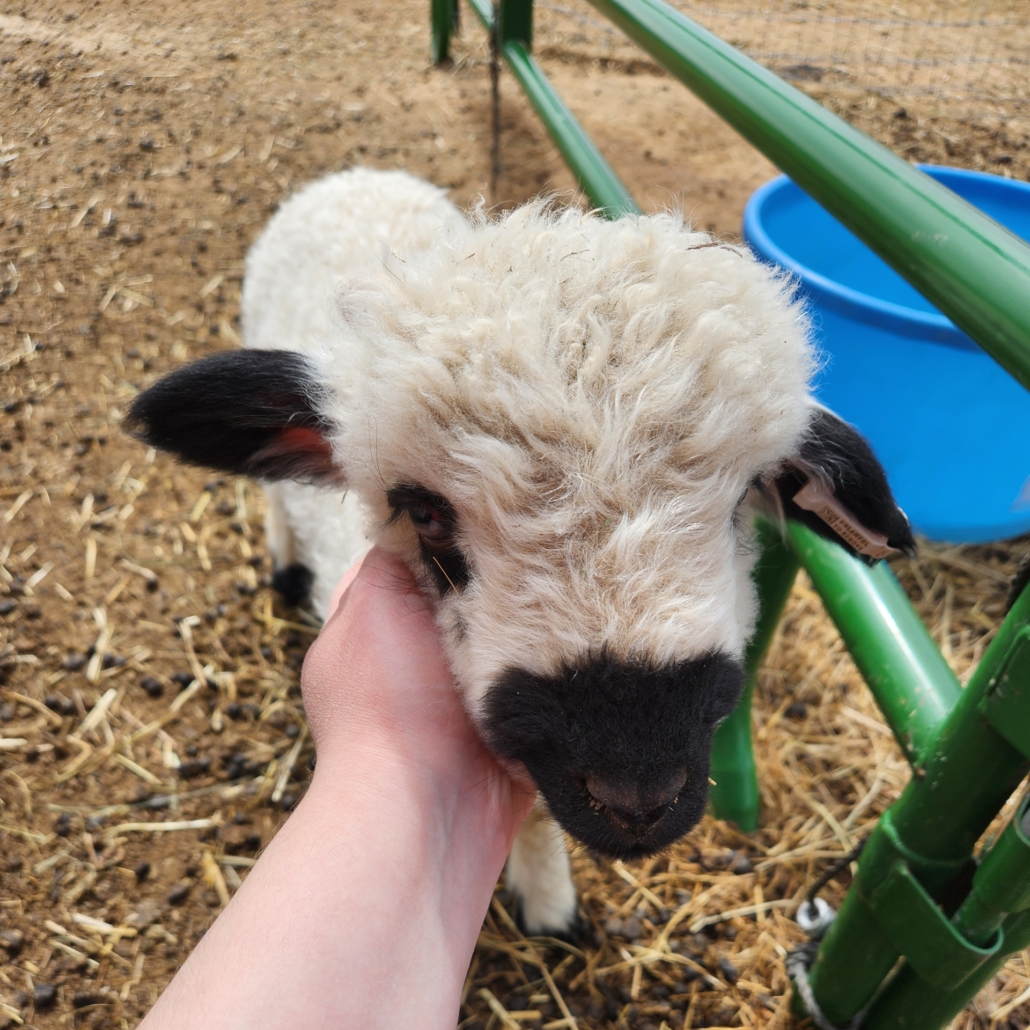
Anne and Rob want their farm to be a resource for people of all backgrounds. They also mentor other breed-up programs. Anyone who buys sheep from the Davis family and has questions about breeding is welcome to give Anne a call, and she will help in any way she can. They are transparent with everything they do. “This is a small enough breed where we need to be supporting and working together,” Anne told me. “We need to be cooperating instead of competing.” The Davis family was the first to bring the Valais Blacknose breed to Colorado and produced the first purebred Valais ram in the state. They are proud to have led the way and now get to celebrate the success of other breed-up programs in Colorado.
The farm invites CSU vet students to gain experience by watching procedures, and in the summer of 2024, the Davis family welcomed their first intern: a local high schooler interested in studying large animal veterinary science in college. Her work on the farm will also gain her school credit, so the program benefits both the Davis family and students interested in exploring agricultural vocations. There is always plenty of work to be done on the farm, and while Rob and Anne’s children, Roy and Maddie, help out when they are available, both currently have other jobs away from the farm.
The last time Anne and I met for coffee, I asked her about the biggest challenges in running their farm. She didn’t hesitate. “The physical demands. Especially the heat.” The summer heat on the high plains isn’t just difficult for farmers, it can also be hard on the sheep. Colorado is so dusty that the dust irritates the sheep’s lungs and can lead to dust pneumonia. The Davises monitor their sheep closely to prevent pneumonia. To breed and raise healthy sheep, the farmer needs to be familiar with the environmental and climate factors that affect their livestock. But Anne isn’t discouraged by these challenges. To the Davis family, being close to the land and having a purpose is incredibly rewarding for them. The family gets to see new life and watch their animals grow and thrive. They get to see the joy on the faces of young children visiting a farm for the first time and the memories that are brought back for older visitors who haven’t been on a farm in years. Anne told me she especially loves when people come back for return visits. “If you think we are cool enough that you want to take your time to come back, that’s pretty special.”
Anyone interested in touring Davis Family Livestock is welcome to contact Anne through the contact page on their farm website: https://www.davisfamilylivestock.com/contact
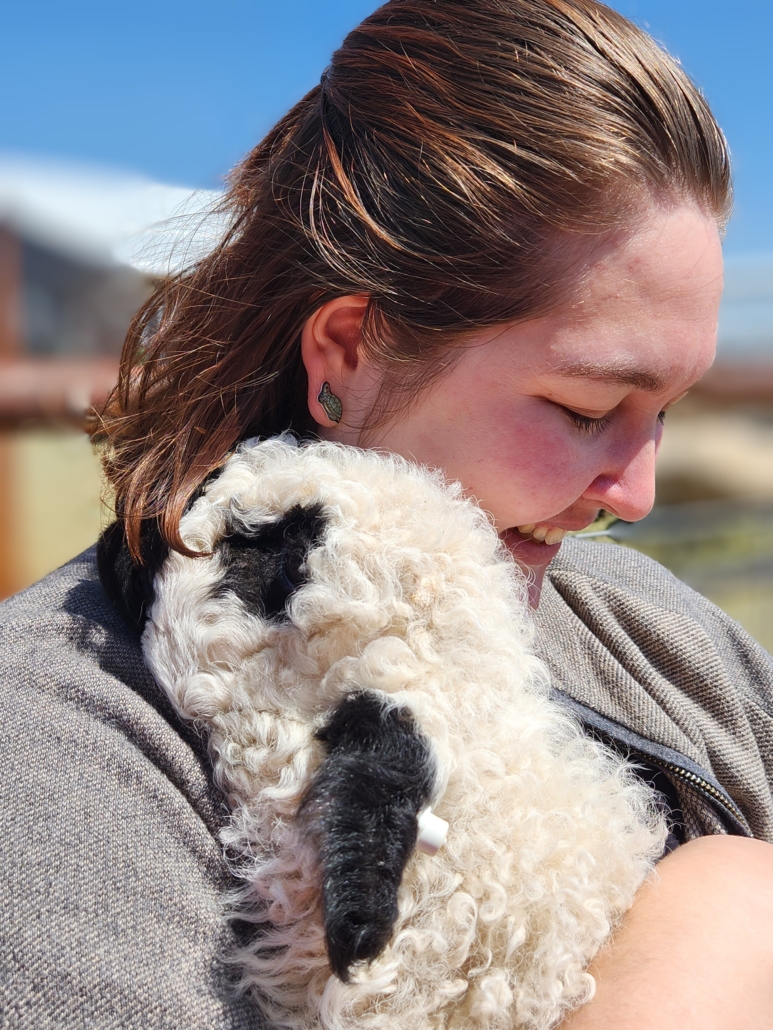
Rowena Zuercher is a freelance editor and researcher who dedicates most of her free time to fiber and textiles. She lives in Aurora, Colorado with her husband Ryan and their turtle, ball python, and aquarium of fish. You can learn about her many heritage craft explorations on Instagram @homesaponified.
Words and photos by Rowena Zuercher (except Davis family photo, which is from Anne Davis)
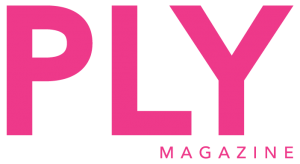
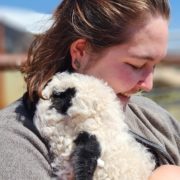
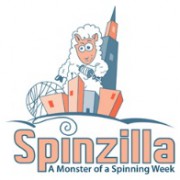
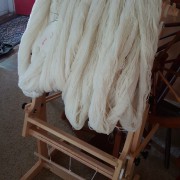
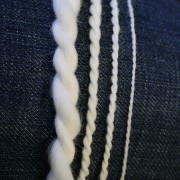
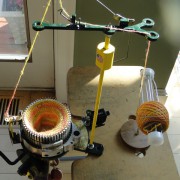
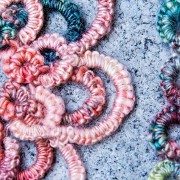


Leave a Reply
Want to join the discussion?Feel free to contribute!